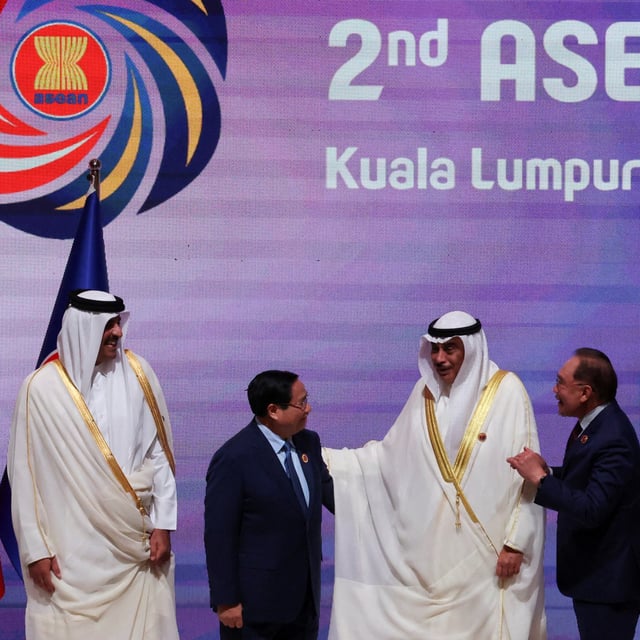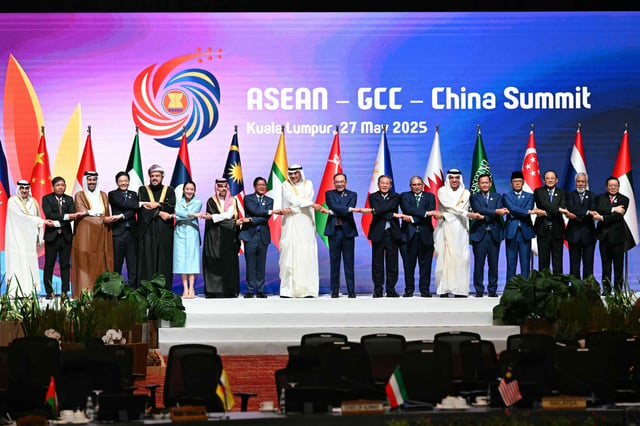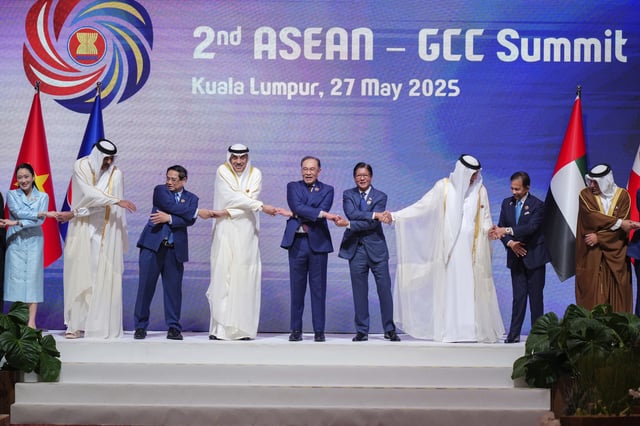Overview
- The inaugural ASEAN–China–GCC summit in Kuala Lumpur concluded with a pledge to enhance economic cooperation and resilience, leveraging the bloc’s combined GDP of nearly $25 trillion and market of over 2 billion consumers.
- ASEAN leaders secured a consensus that any bilateral tariff agreements with the United States must safeguard the collective interests of all member states.
- Member states agreed to court greater Gulf investment in sectors such as technology, artificial intelligence and renewable energy to diversify growth beyond traditional markets.
- Chinese Premier Li Qiang offered deeper macroeconomic coordination and industrial collaboration under a framework of open regionalism.
- ASEAN unveiled a five-year strategic plan to harmonise trade standards, boost financial integration and strengthen supply chains toward becoming the world’s fourth-largest economy by 2045.



